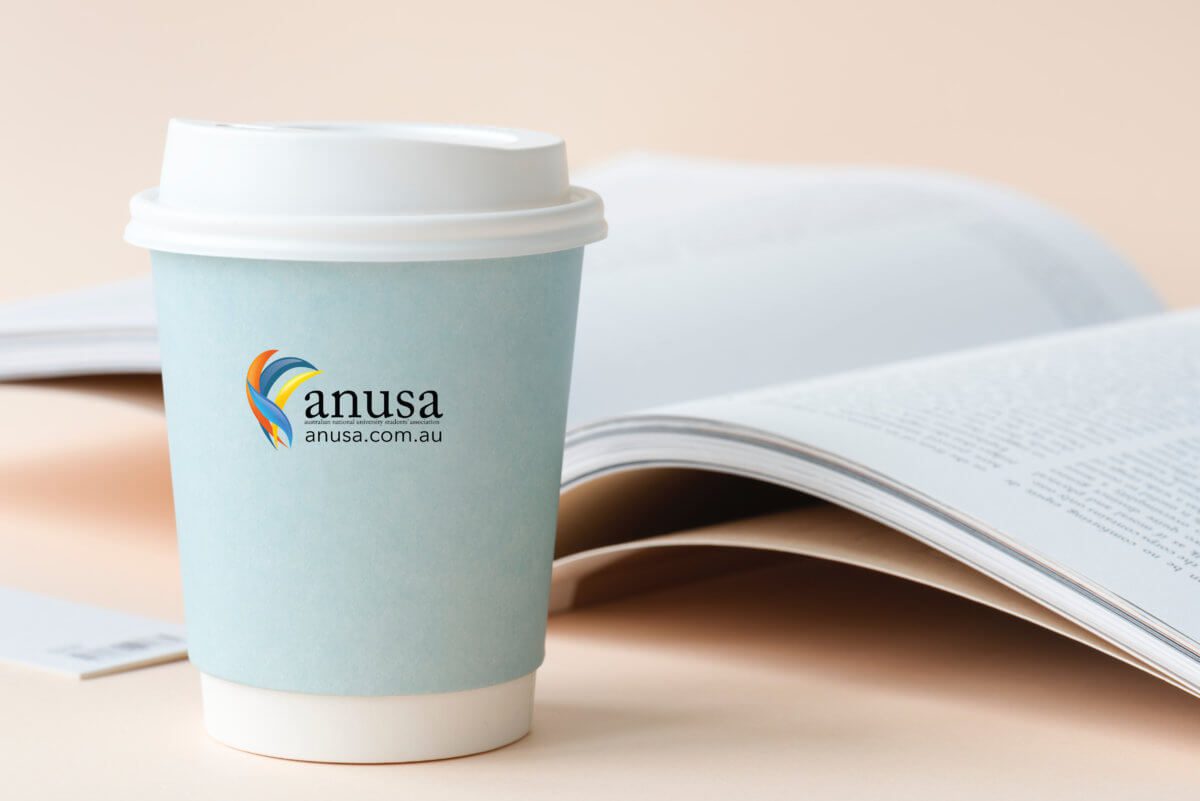What is ANUSA?
ANUSA – or the ANU Students’ Association is the ANU’s undergraduate representative body. All undergraduate students enrolled at the ANU are automatically members of ANUSA.
ANUSA is responsible for managing the Clubs Council, provides welfare services such as academic, accommodation and financial assistance, and a whole host of other services such as free meals, advocacy, legal advice, social events and more. Being a part of ANUSA means having the opportunity to engage in a workplace where you can use your skills to help better the life of students on campus and gain some professional experience by helping manage a large non-for-profit organisation.
ANUSA’s assembly is composed of six executives (President, Vice President, General Secretary, Treasurer, Clubs Officer, Welfare Officer and Education Officer), fourteen general representatives, seven department-officers representing marginalised communities, and 14 college representatives.
What are the main portfolios? What do they do?
ANUSA has seven core departments which provide advocacy and specific services to different segments of the undergraduate population.
The ANU Environment Collective (EC) is for students who are passionate about advocating for environmental issues, as well as other major social justice issues. The EC runs events such as talks of environmental topics and film screenings, and runs campaigns to bring sustainability to the ANU campus.
The ANU Disabilities Student Association (DSA) provides a community, autonomous spaces, services and advocacy for students who identify as having a disability. The DSA is the only group on campus run for students with disability by students with disability, and works to advocate for students with disabilities and generate structural changes at the ANU to bring inclusiveness and accessibility for all students.
The Bla(ck), Indigenous, People of Colour (BIPOC) Department is an autonomous and non-political group that represents students of colour at the ANU. The BIPOC officer advocates both in the ANUSA Council and in the Deputy Vice Chancellors Diversity and Inclusion Working Group to ensure the needs of students of colour are met and addressed across the ANU institutional structure. The BIPOC Department also provides education, advocacy and support for all students who identify as people of colour, and provide safe, autonomous spaces for students to speak openly about their opinions and experiences.
The International Student’s Department (ISD) is a student-run department representing international students across campus. The department focuses on running social events, advocacy services, workshops, education events and assistance with academic procedures to support international students navigating their time at the ANU. All undergraduate international students are automatically members of the ISD.
The Indigenous Department represents undergraduate Aboriginal and Torres Strait Islander students at the ANU. They conduct a wide range of cultural, educational and recreational activities and services for students, as well as advocating for Indigienous issues across the ANU community. The Indigenous Department works closely with the Tjabal Indigenous Higher Education Centre to provide a wide range of services like tutoring and pathway programs.
The Queer* Department provides services to all students who identify as LGBTIQA (lesbian, gay, bisexual, transgender, intersex, queer/questioning and/or asexual) at the ANU. They run political campaigns, social events and advocacy to provide a welcoming community and a safe space for students to share their experiences and meet other queer* ANU students.
The ANU Women’s Department seeks to represent and support for all ANU students who identify as a woman and/or have experienced oppression as a result of being perceived by others as a woman. The department welcomes trans women and non-binary people who identify with the previous definition or find the services of the department useful. The Women’s Department provides advice and referrals to professional services, as well as hosting events and workshops on women’s issues, feminism and a wide range of other topics.
ANUSA received 35% of the 2021 SSAF (Student Services and Amenities Fee) pool, roughly equating to $1,642,550. Furthermore, the ANU provided a ‘top up’ of $125,000 and ANUSA was allowed to keep its 2020 rollover. Therefore, ANUSA received a total of $2,036,983.7 for 2021, of which included roughly $185,000 in payment to the Executive.
So how do you run for ANUSA?
ANUSA elections are held in Term 3 of every academic year, and each position is held for one year, beginning December 1st and ending November 30th of the following year. Candidates can run as independents, or join a ticket (a team of students who campaign on a particular set of beliefs or policy issues).
If you’d like to run for ANUSA for a ticket, you can fill out the expression of interest ANUSA election form. Here you can share why you’d like to be an ANUSA representative and indicate what positions you’d like to run for. Ticket convenors will be able to request access from the 9th of June and will coordinate students to run on their platform. If you’d like to run as an independent, you can nominate individually when they open on the 2nd of August. Nomination calls will close on the 18th of August for tickets, and the 20th for individual/independent nominations. Polls will open Monday of week 6 at 9am and will close at 12pm on Thursday. The votes will then be counted and results reported as soon as possible.
We acknowledge the Ngunnawal and Ngambri people, who are the Traditional Custodians of the land on which Woroni, Woroni Radio and Woroni TV are created, edited, published, printed and distributed. We pay our respects to Elders past and present. We acknowledge that the name Woroni was taken from the Wadi Wadi Nation without permission, and we are striving to do better for future reconciliation.
